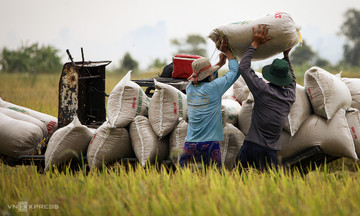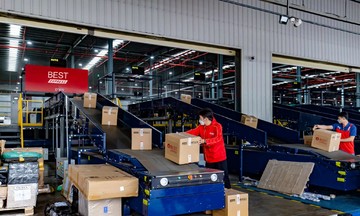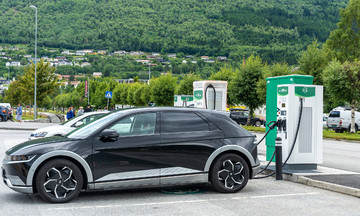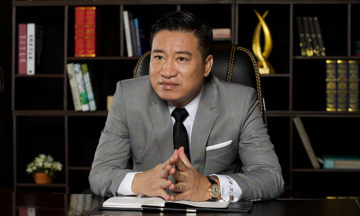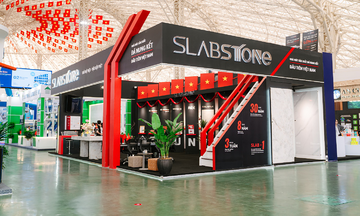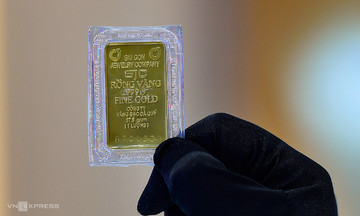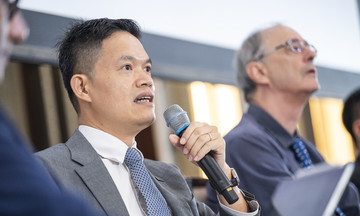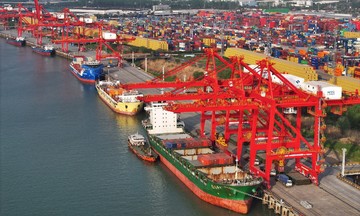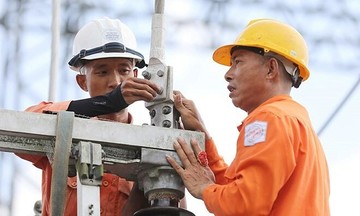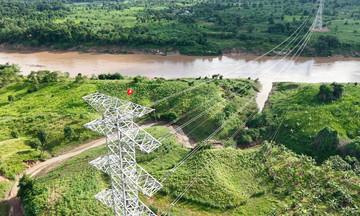Vietnam is experiencing rapid urbanization, with increasing populations concentrating in major cities. The challenge lies not just in building more housing, but in improving the quality of life, ensuring that urban areas nurture communities, preserve culture, and promote sustainability. The government plays a planning and policy-making role, while private businesses are the force that realizes these goals.
In the talkshow "Building the Nation," focusing on "Elevating the Living Standards of Vietnamese People," broadcast on the Government Information Portal on 26/8, Thi Anh Dao, Chief Marketing Officer at Masterise Group, addressed the question, "Can the appearance and living standards of cities be defined by private businesses?"
From building houses to creating living standards
According to Dao, this is possible, but businesses cannot "self-proclaim standards" subjectively. They must align with macro policies and address the real needs of residents. "Elevating living standards is no longer a slogan, but a genuine professional imperative for those of us in this field," Dao emphasized.
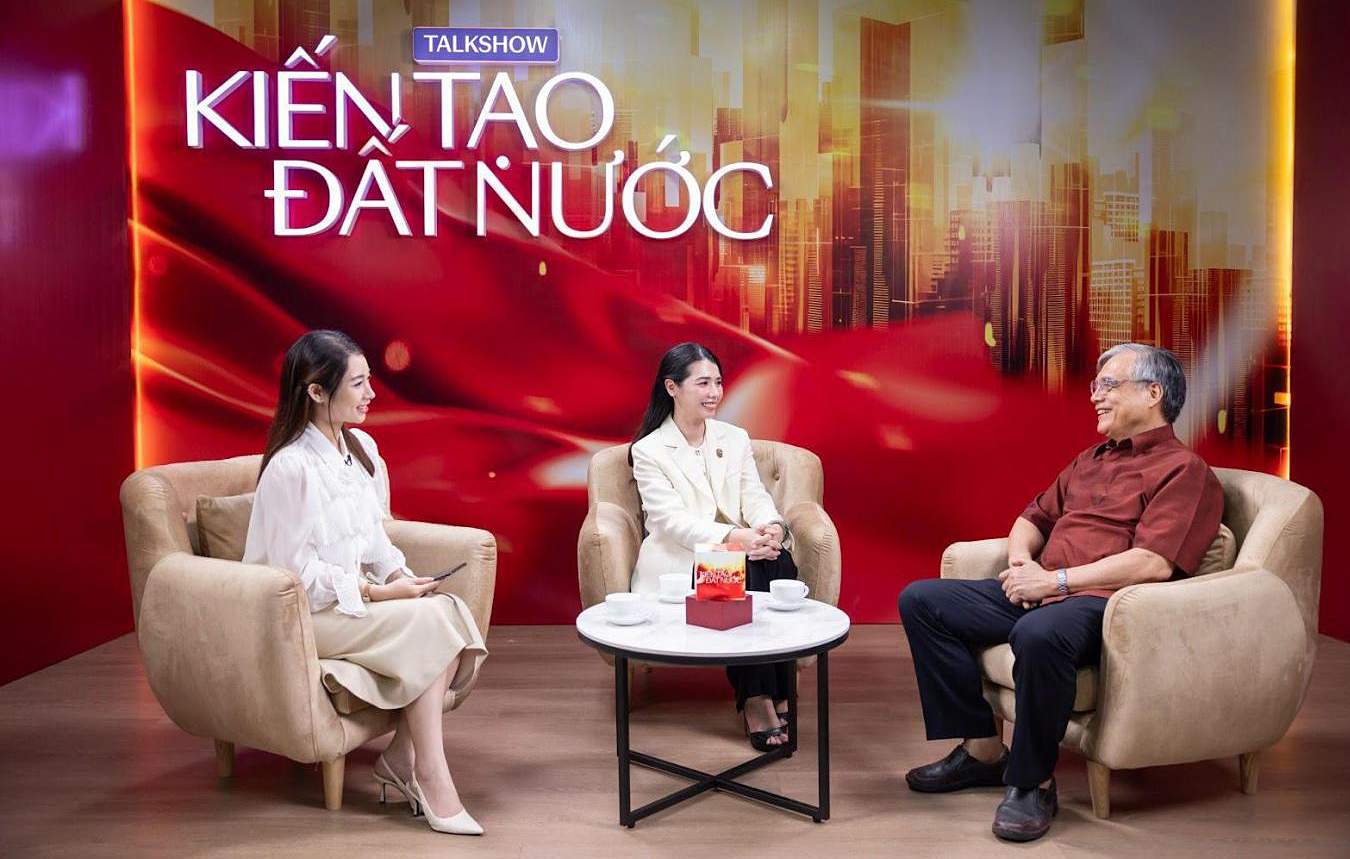 |
The "Building the Nation" talkshow, broadcast on 26/8. Photo: Masterise Group |
The "Building the Nation" talkshow, broadcast on 26/8. Photo: Masterise Group
In the context of rapid urbanization, raising living standards cannot stop at adding amenities, Dao explained. It must also create connectivity and deliver real value to people. Simply creating luxurious but isolated urban areas can trap businesses in "ivory towers"—opulent but inaccessible to the majority, lacking connectivity, and unable to serve the daily rhythms of life.
Masterise Group links "living standards" with social responsibility and national development. The company views raising living standards as both a business objective and a long-term commitment to the community. This vision is partly reflected in Masterise Homes, a member of Masterise Group, a brand associated with over a decade of creating living spaces for Vietnamese people.
"At Masterise Homes, we have chosen our own path. Our projects are developed according to a new definition of 'luxury' in real estate, thereby elevating the quality of life and creating experiences worthy of our residents," Dao stated.
Masterise Group’s Chief Marketing Officer also emphasized that "luxury," from the company's non-traditional perspective, is not synonymous with extravagance. It represents a guarantee of quality of life accessible to the middle class, upper-middle class, and the younger generation of successful Vietnamese. A luxury project, as defined by the company, must meet four core criteria: meticulous attention to detail, enduring value over time, heritage inspiration, and international recognition.
"This is the vision Masterise Group has set forth, aiming to reduce the number of exclusive 'ivory towers' and focus on creating living spaces that truly address the concerns of various customer groups," Dao affirmed.
With Resolution 10 identifying the private economy as a crucial driving force and Resolution 6 setting the goal of sustainable urban development by 2045, Dao believes businesses must see themselves as part of the nation-building ecosystem. Companies in the industry cannot simply "build houses to sell," but must participate in creating a living environment that balances economic, social, and environmental benefits, aligning with the spirit of these resolutions. From this perspective, creating a livable urban area requires collaboration: planning from the government, appropriate support policies, and a responsible, ethical approach from businesses.
"To develop Vietnamese cities on par with international standards requires not just government regulations or investment capital, but also how each business creates urban areas—not just building many buildings, but transforming them into truly livable spaces," she observed.
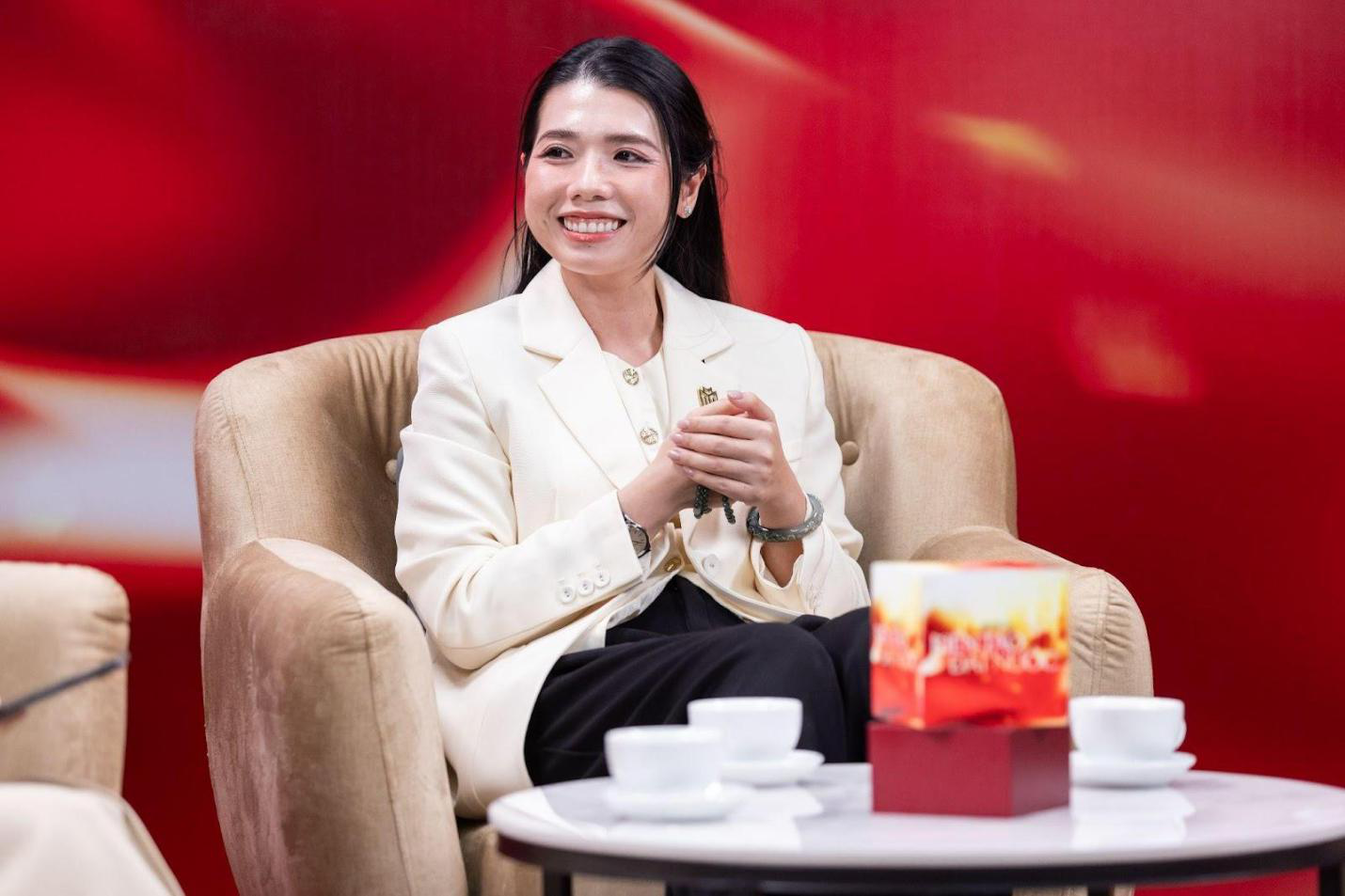 |
Thi Anh Dao, Chief Marketing Officer at Masterise Group. Photo: Masterise Group |
Thi Anh Dao, Chief Marketing Officer at Masterise Group. Photo: Masterise Group
A key differentiator for Vietnamese private businesses venturing internationally, according to Dao, is the "Vietnamese essence." This is the ability to create living spaces that meet international standards while retaining cultural and ancestral connections, reflected in design, landscaping, and public works.
Masterise Group chooses the long-term path, embracing responsibility
Real estate is a high-profit sector. However, according to Dao, Masterise Group has chosen a different path—building a brand based on a long-term vision, accepting responsibility to strive for a sustainable future.
The group has established a principle: business interests are inseparable from community interests. When residents, the direct beneficiaries of their products, grow economically, spiritually, and in terms of their values, they will empathize with and appreciate the value the business brings to society.
Therefore, urban development needs to create places where residents find connection with themselves and their community, while also providing balance and energy renewal. Furthermore, these spaces should embody sustainable living values that will endure with them into the future.
"The long-term value of real estate comes not only from the 'hardware'—infrastructure and design—but also from the 'software'—the quality of the community and how residents together create a lifestyle," Dao explained.
However, achieving this goes beyond philosophy. Therefore, Masterise Group transforms experience, lessons learned, and international collaborations into a system of standards for each product line. "Each customer segment has its own set of standards, ensuring that we meet their actual needs rather than applying a single formula," Dao added.
A prime example is The Global City urban project, developed by Masterise Homes. Here, the "15-minute city" model is applied, where all essential needs—from education, healthcare, shopping, and entertainment to green spaces—are accessible within a 15-minute walk. Bringing this international standard to Vietnam helps residents save time and gain more "quality time" for themselves, their families, and their community.
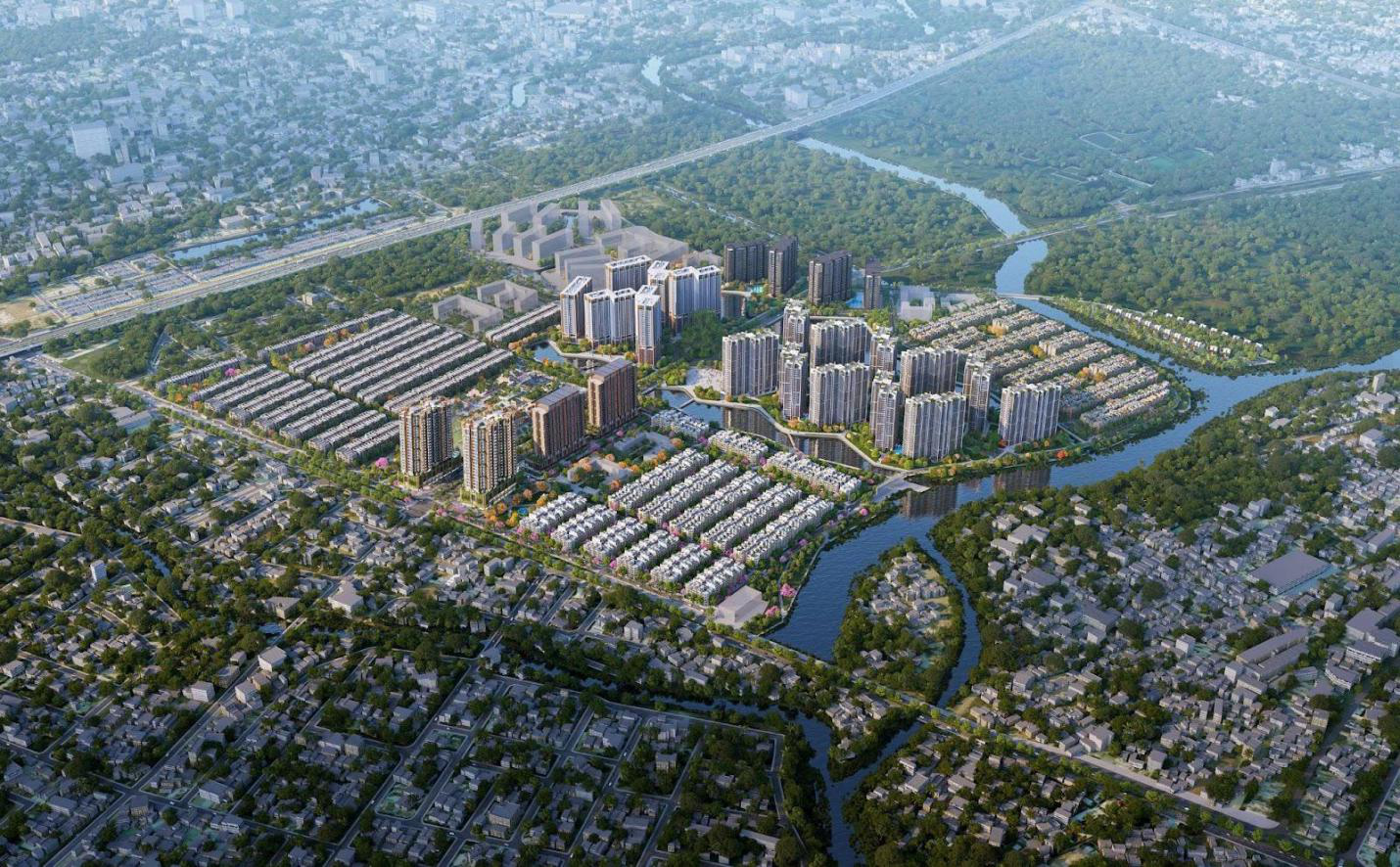 |
The "15-minute city" model applied at The Global City. Photo: Masterise Homes |
The "15-minute city" model applied at The Global City. Photo: Masterise Homes
These international standards are adapted to suit Vietnamese culture. The Global City's housing designs incorporate elements of Ho Chi Minh City's cultural identity, allowing residents to live in an international city while staying connected to their roots. The planning also considers diverse spatial allocation needs for young people, families, and seniors, creating an inclusive city where various social strata coexist.
These philosophies, according to Dao, are translated into specific standards from design to operation and management. This ensures that value truly reaches residents, in turn enhancing the long-term value of both the project and the brand.
Finally, the Masterise Group leader affirmed that to achieve its goal of becoming a high-income nation by 2045, Vietnam must develop a sustainable, competitive, and humane urban system. The participation of the private sector is essential. More importantly, there must be businesses that know how to "create" rather than just "develop."
Hoai Phuong



